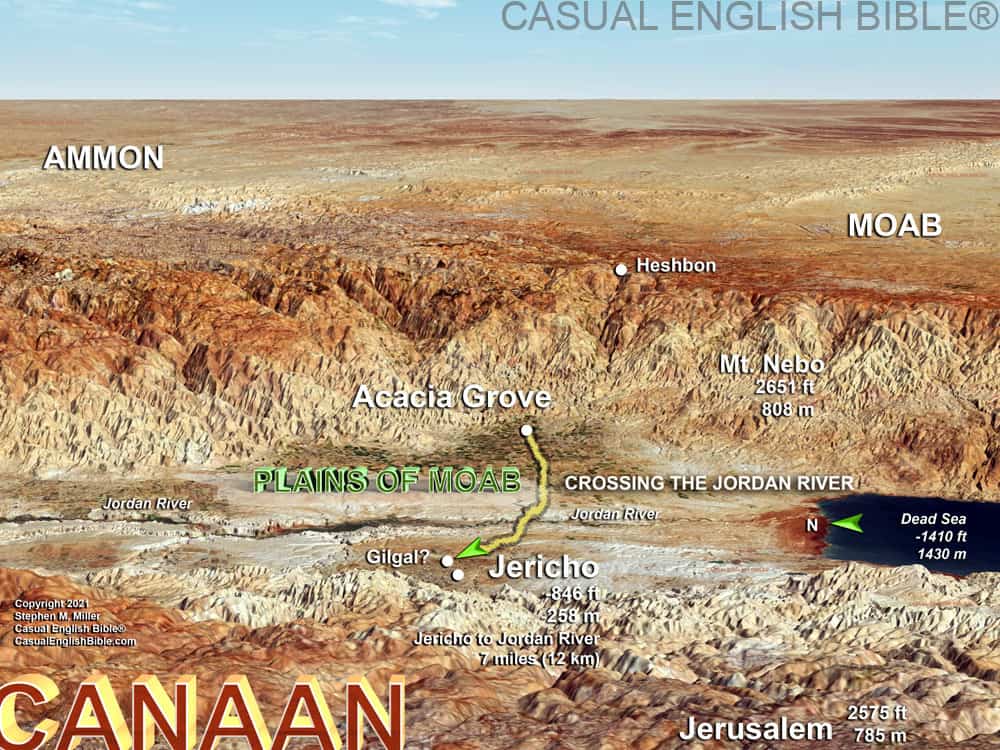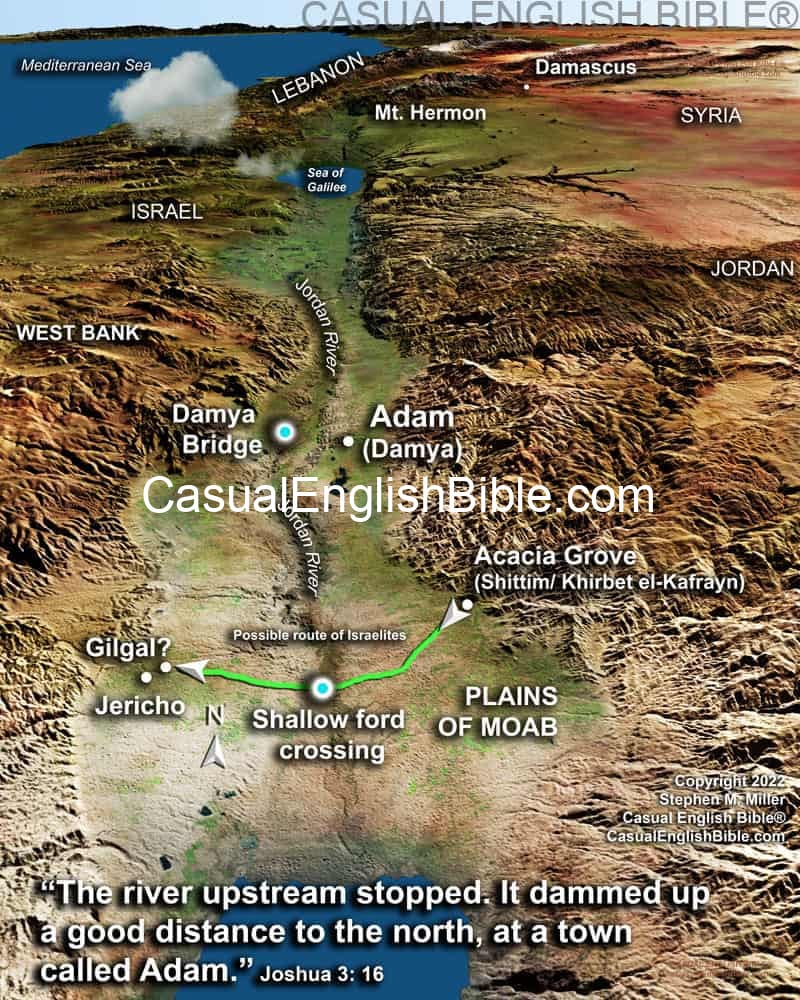Joshua 5
Circumcising Generation Two
Demoralized enemies
1Amorite kings west of the Jordan River and Canaanite kings near the Mediterranean Sea have all heard about the LORD drying up the Jordan River so Israelites could cross. That news demoralized them. It dried up every drop of their courage.Time to circumcise
2That’s when the LORD told Joshua, “Sharpen knives from flint rocks. Then circumcise any boys or men who haven’t yet been circumcised.” [1] 3So Joshua ordered the people to make flint knives. The circumcision took place at a site they called Foreskin Hill. [2]4There’s a reason Joshua had to order the second generation of males to get circumcised. The first generation got circumcised. That included any male old enough to fight in battles. [3] But that first generation of adults coming out of Egypt died in the desert wasteland. 5Joshua was working with a new generation. The first generation had gotten circumcised. But this new generation—born after the escape from Egypt—skipped it. [4] 6Israelites had lived 40 years in the desert badlands. All the men old enough to fight in war eventually died during those 40 years. They died in the desert because they disobeyed God. The LORD had told them they would never see the land where milk and honey flow like rivers. [5] 7So, Joshua had their children circumcised because the first generation didn’t do it themselves. 8Israelites remained in camp until the men recovered.
God erases Israel’s shame
9The LORD told Joshua, “You were slaves in Egypt, and ashamed. [6] You’re not ashamed anymore. I’ve gotten rid of your shame.” Joshua named the place Gilgal. [7] 10Joshua and the Israelites celebrated Passover while they camped at Gilgal, on the Jericho plains. Passover started in the evening on the fourteenth day of the first month on the Israelite calendar. [8] 11The next day—for the first time—they ate food made from Canaanite crops. They ate yeast-free bread and roasted grain. 12That’s when God stopped feeding them manna. [9] He stopped the day after they ate their first meal from the local Canaanite crops.Joshua meets heaven’s commander
13Joshua went close to Jericho one day and he saw a man standing in front of him. The man was holding a drawn sword, ready to use. Joshua moved toward him and asked, “Are you with us, or with our enemies?” 14The man said, “No to both. I command the LORD’s army. That’s why I’m here now.” Joshua dropped to the ground, face down in deep respect. There, Joshua asked, “I serve the LORD. Do you have a message for me?” 15The commander said, “This is holy ground. Take off your sandals.” Joshua did.Footnotes
Even today, a boy born into the home of observant Jews will usually have the foreskin of his penis cut off on the eighth day of his life. This Jewish ritual started with Abraham about 4,000 years ago (Genesis 17:10-13). God made a contractual agreement with Abraham, promising to give him many descendants and to let them live in this land which is now Israel and Palestinian Territories. Instead of having Abraham sign the contract in handwriting, the Bible says God wanted every Jewish male to sign it in blood. Circumcision became a reminder of God’s promises to Abraham and his descendants.
The Hebrew name is Gibeath-haaraloth. Gibeath comes from giba, which means “hill.” Ha can mean “the” along with other connecting words like “unto.” The rest of the second word comes from orla, which means “foreskin.” It’s a tough call which term to use: Hebrew or English. The Hebrew is fairly unpronounceable. And the English is somewhat unspeakable. But in Hebrew or English, it is what it is.
Age 20 (Numbers 1:45).
It might seem odd that the Israelites hadn’t obeyed the law about circumcision, but they spent the entire generation in the desert because they didn’t obey God. That was the reputation they developed.
God sentenced the people to 40 years in the desert because they didn’t invade Canaan when God told them to. They were afraid of the giants and the walled cities that their scouts said they would have to face (Numbers 32:13).
Perhaps their shame was connected to the fact that they weren’t circumcised. That would fit the context of this story. But the shame might also refer to the fact that slavery was shameful and victory on the battlefield was not.
It’s unclear what the name means or how it was connected to what had just happened. Some say the name means “rolling” or “circle of stones.”
Israelites followed a lunar calendar, with every month starting at the first tiny crescent after the new moon. A new moon is when the moon is hidden behind earth’s shadow for one day. The sun, moon, and earth are aligned, with earth in the middle. Nisan is the name of the first Jewish month of the year. It’s when Jews celebrate one of their most revered holidays: Passover. The month falls around Eastertime, in March or April. Jesus went to Jerusalem to observe Passover when he was arrested and crucified.
The Hebrew word is man, pronounced “MAWN.” It’s a good journalism word because it can mean: How? Why? Who? What? What is it? (Exodus 16:15). Some scholars say a fair English translation of the word might be “whatchamacallit.” Or maybe “whatever.” As in, the Israelites had that “whatever” for breakfast every morning. Exodus says it looked like coriander seeds. Those seeds are small, roughly 2-3 millimeters in diameter, about an eighth of an inch. They’re eatable and often used as spice. Some say they have a nutty citrus taste of lemon or orange.
Discussion Questions
- Sorry, there are currently no questions for this chapter.







